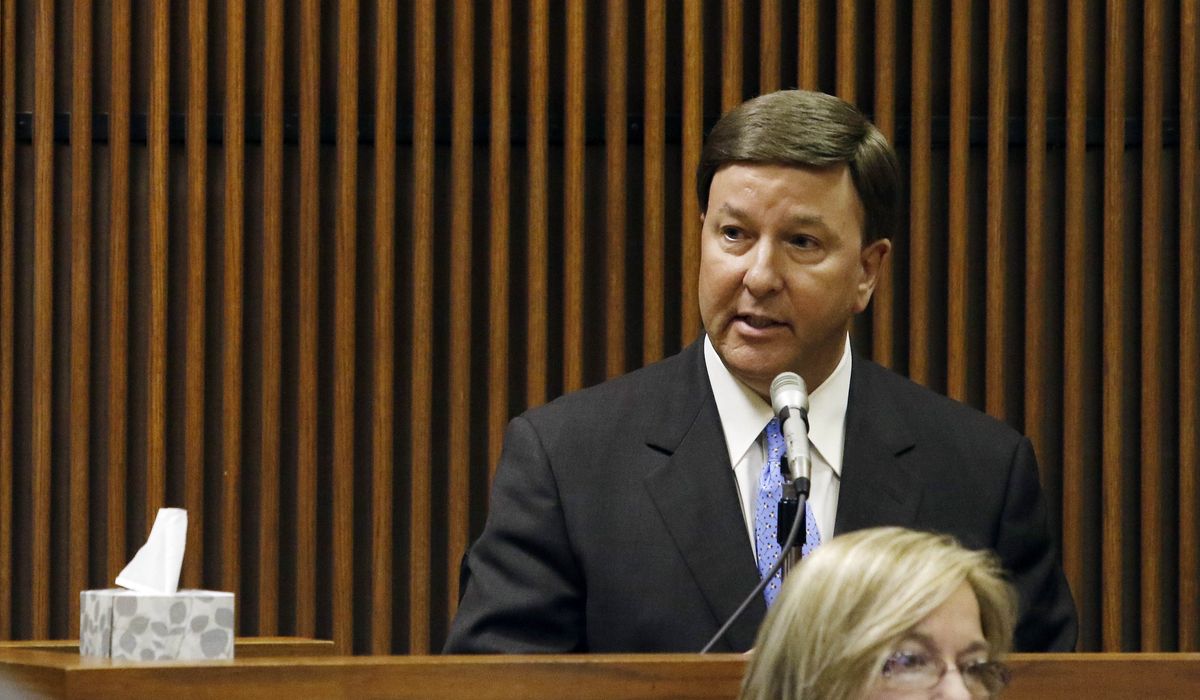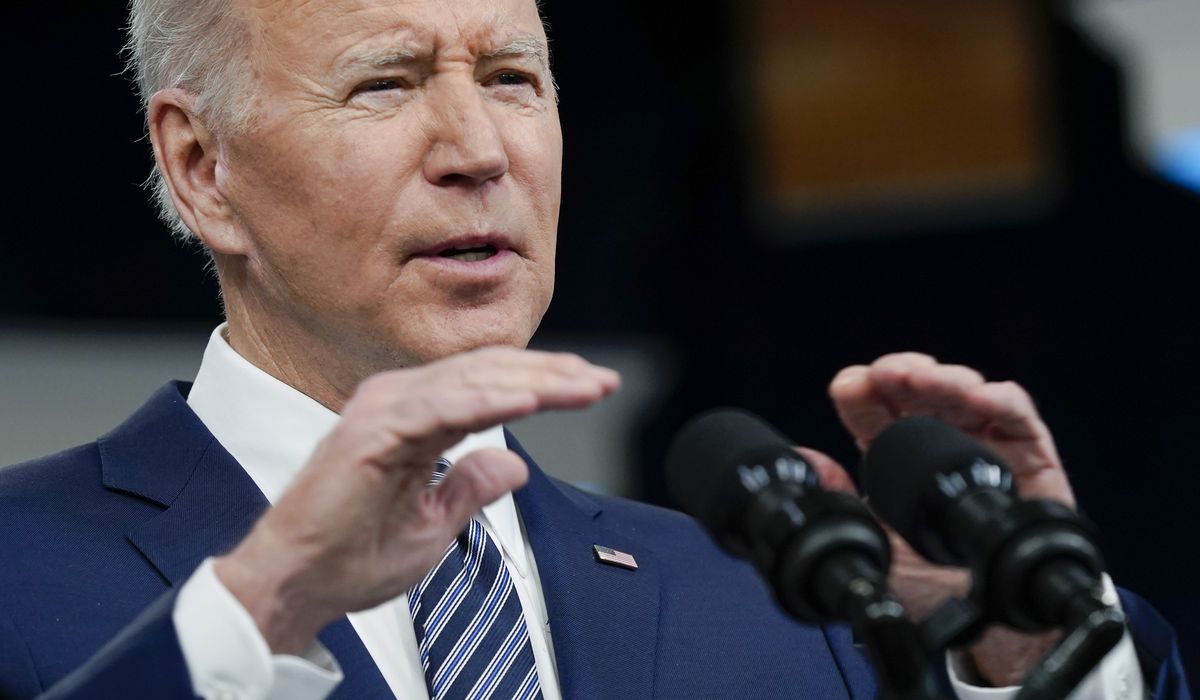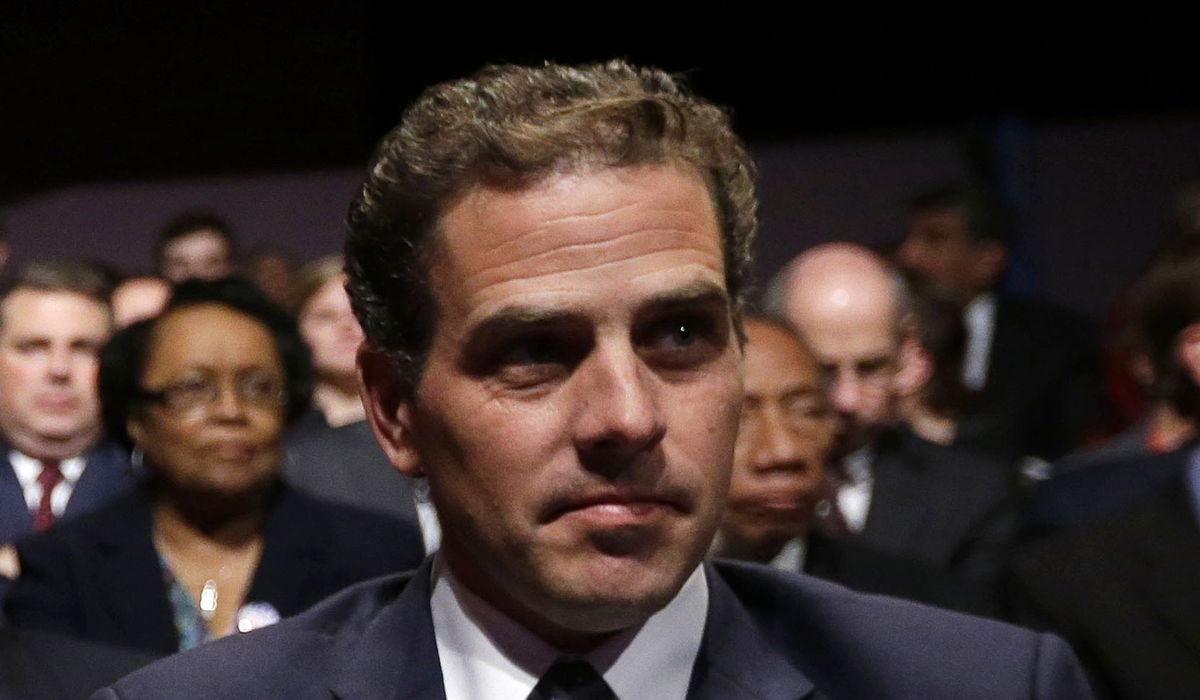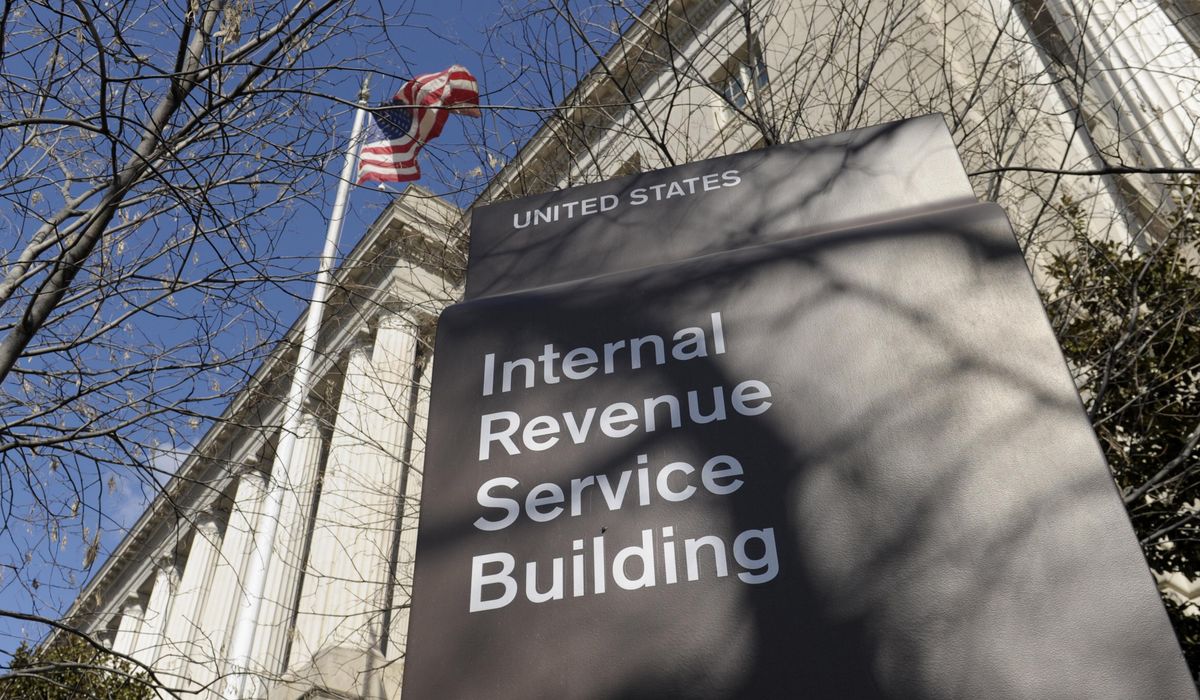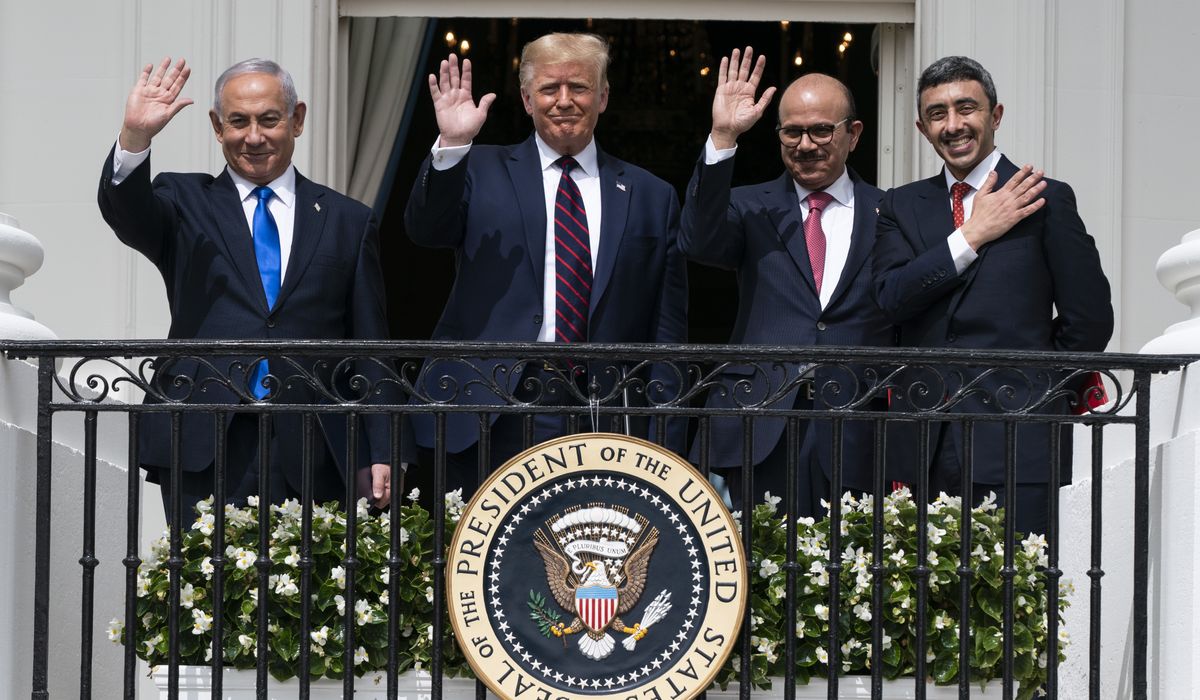
Prominent Arab and Israeli figures say Middle Eastern countries must “keep pushing” for peace a year and a half after the breakthrough Abraham Accords, which cleared the path for diplomatic normalization between Israel and several long-hostile Arab powers, including the United Arab Emirates, Bahrain and Morocco.
Former Israeli Prime Minister Ehud Olmert, UAE National Council Member Ali Rashid Al Nuaimi and former Israeli Knesset Deputy Speaker Hilik Bar promoted a message of dramatic positive change in the Middle East since the Trump administration ushered in a radical overhaul of the region’s diplomatic landscape in September 2020.
With Israeli-Palestinian violence spiking this week and a spate of attacks by Iran-allied militants rocking other parts of the region, the tone of a special online panel discussion that the three attended Thursday was sober. Mr. Al Nuaimi said it was vital to remain optimistic.
“We have to understand that in our region there are enemies of peace and those who will try to undermine what we are doing, but we should have the courage to take the lead,” said the UAE official.
He said supporters of peace must push to expand the Abraham Accords in the years ahead.
“When it comes to engaging with peace, there is no other option,” said Mr. Al Nuaimi, who chairs the UAE National Council’s Defense, Interior and Foreign Affairs Committee. “We have to keep the momentum, keep pushing and engaging everyone, not only those countries who signed the Abraham Accords.
“There is no way back,” he said, “regardless how the American administration looks at this, or the Europeans. This is our path. This is our decision. We have to fight for it and push for it and engage all those who love peace, who believe in peace in the world actually, to work with us to transform this region.”
Mr. Olmert praised an Israeli summit Monday where the foreign ministers of Egypt, the UAE, Bahrain and Morocco, along with Secretary of State Antony Blinken, promoted further dialogue, urged other Arab countries to join the Abraham Accords framework, and pledged to expand cooperation on energy, environmental and security matters.
Sudan, a fourth Arab country that moved to normalize ties with Israel after the initial round of Abraham Accords was signed in 2020, did not attend the summit in Israel, reflecting domestic turmoil after an October military coup.
Mr. Olmert said Thursday that the manner in which the other six nations “gathered together in a very friendly and respectful way is a signal that something dramatically has changed in the Middle East as a result of the Abraham Accords — there is no question about it.”
Mr. Bar agreed. “It is evident that a year and a half after signing the first Abraham Accord, the unity among nations is growing together,” he said. “This fact sends a very strong message that peace-loving citizens of the Middle East will prevail over conflict, terror and war.”
Mr. Bar, Mr. Olmert, Mr. Al Nuaimi and others, including former Canadian Prime Minister Stephen Harper, spoke during an online panel discussion presented Thursday by the Middle East Peace Initiative Forum and hosted by the Universal Peace Federation, a global interreligious network of individuals and organizations dedicated to promoting world peace. The UPF was co-founded by the Rev. Sun Myung Moon and his wife, Hak Ja Han Moon, who together founded The Washington Times in 1982.
Former House Speaker Newt Gingrich, a Republican, praised the Abraham Accords in a recorded video message. He said the Biden administration has not done enough to embrace and promote the normalization agreements, which he described as a symbol of unity between Arab powers and Israel against Iran.
The current administration, Mr. Gingrich said, is undermining the accords by pushing for a diplomatic detente with Iran and a renewal of the Obama-era nuclear deal with Iran. President Trump withdrew the U.S. from the deal in 2018.
“It’s a very important step to try to make sure that the Middle East doesn’t just slide into a total disaster based on the desperation of the Biden administration wanting to get an agreement with Iran no matter what the cost,” he said.
“What you have is the United Arab Emirates, Bahrain, Egypt and Israel coming together to create an Abraham Accords alliance, because they all recognize that the Iranian dictatorship — with its open statement of desire to dominate, with its leading support for terrorism, with its effort to get both nuclear weapons and ballistic missiles — is really, really dangerous,” Mr. Gingrich said. “The current administration, unfortunately, is following a policy that empowers and strengthens the Iranian dictatorship.”
Mr. Al Nuaimi rejected the notion that the Abraham Accords was meant as a regional check to Iran. He said the agreements are much broader in philosophical scope and symbolize the potential for peace across the whole of the Middle East, Iran included.
“The Abraham Accords is not a political agreement, it’s not a security agreement, it’s not an agreement, you know, to counter Iran,” Mr. Al Nuaimi said. “It’s a platform to change the region. It’s an agent of change for the whole region, you know, to transform into a new region where everyone will enjoy security, stability [and] prosperity, where the Israelis will feel that they are part of this region, that, you know, they belong here, their root is here.”
He highlighted person-to-person exchanges and the dramatic opening of tourism between Israel and the UAE since the Abraham Accords were signed. Some 300,000 Israelis visited the Emirates over the past six months for the World Expo 2022 in Dubai, he said.
Still, the Abraham Accords has yet to overcome the challenges of the Israeli-Palestinian conflict, an issue that loomed over the summit in Israel this week. Egyptian Foreign Minister Sameh Shoukry told reporters that he and other Arab leaders “highlight[ed] the importance of the Israeli-Palestinian peace process [and the] importance of maintaining the credibility and viability of the two-state solution” during the summit, according to The Associated Press.
The Biden administration has called on Israelis and Palestinians to create conditions for renewing peace talks that broke down more than a decade ago. Israeli Prime Minister Naftali Bennett has long opposed a separate Palestinian state and has declined to restart peace talks. Instead, he has called for steps to improve economic conditions for the Palestinians to help reduce tensions.
Mr. Olmert said that “the main thing that still remains to be seen is the future negotiations between [Israelis] and the Palestinians.”
“I’m not so certain that we can put the blame for the lack of this process on one side,” he said. “I think that both sides should do a lot more to move forward and establish the necessary foundations for negotiations.”
“Considering the fact that there is the Abraham Accords peace … the Palestinians must be on top of the agenda,” Mr. Olmert said. “We need to work together to work forward rapidly, seriously and responsibly in order to create the kind of understanding, which is a preliminary requirement for furthering the negotiations between Israel and the Palestinians toward a full peace treaty.”



